This year, more than ever, we have learned to value the importance of friendship and connection. We have gained a huge insight into what it feels like to be isolated from others. Sadly, some members of our school communities have been targets of bullying behaviour and are all too aware of what it feels like to be left out of the “tribe”. Did you know that according to the Anti-bullying Centre more than a quarter of Irish children have experienced cyber bullying during lockdown? (Source: The Irish Examiner, November 2020).
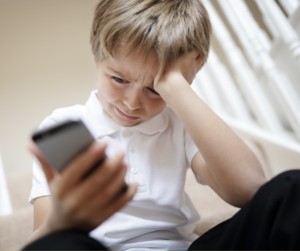
Anti-bullying Week 2020 takes place from the 16th of November to 20th November. You may prefer to reframe this bullying prevention initiative as "Friendship Week".
In this post, we are going to share a range of bullying and cyberbullying prevention resources that range from raps to using puppets to creating a whole class book. The aim is to promote a culture of kindness. It’s also important to think about how we can create friendly school communities throughout the year as bullying prevention should not be a standalone initiative. Many of the resources featured in this post can be referenced throughout the year as a reminder of the type of school community we would like to be part of.
1. Happy Suns and Sad Sheep
Happy Suns and Sad Sheep is an anti-bullying pack for use with the under fives. The resource adopts a play-based approach to teaching younger children about feelings and emotions, self-esteem, and accepting difference. It consists of a range of icebreaker games, trust games, parachute games and puppetry to explore the themes. Puppets are used to explain to young children about bullying behaviour in a way that is developmentally appropriate.
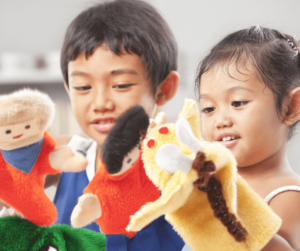
2. Plant, Love, Grow Friendship Building Resources
There are a wealth of free resources available on Plant, love, grow to support Anti-Bullying Week. The resources include discussion prompts, tips on making new friends and helpful worksheets that explore healthy boundaries in friendships in a child-friendly way.

3. Making and Keeping Friends Activities
This blog post features a range of sample activities used by a school counsellor on the topic of making and keeping friends. It includes templates for creating a whole class friendship book and a poster to remind the children of the key to being a good friend. Another useful concept that’s explored is the friendship triangle, where one child can feel left out of a friendship group.
4. How to encourage children to stand up for others.
Often when children (or adults) witness incidents of bullying behaviour they do not intervene. There are many complex reasons behind this, one research finding indicates that sometimes it’s simply because children are unsure how to respond. Dr Michele Borba provides a simple mnemonic (bully BUSTER skills) in this blog post that makes it easy for children to recall how they can help. After teaching the children about the types of behaviour that can be classed as bullying, this mnemonic can be very helpful. It’s a good idea to revisit the mnemonic frequently to instil the importance of standing up for others. This is a very simple tool that could be used by all members of the school community.
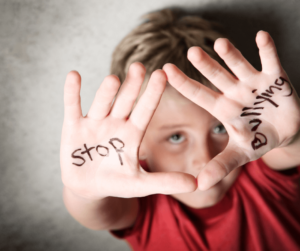
5. The National Anti-bullying Website
The “app watch” tab is a very useful resource for parents, guardians and teachers as it explains the features of apps such as House Party, Tik Tok, etc. It explains how parents/guardians can check if their child has downloaded a particular app and also advises on features of the app that the caregiver would need to be mindful of. Under the "resources" tab there are links to downloads, publications and articles that can be used in the classroom or shared with parents and guardians.
6. Free Downloadable Internet Safety Resources
Webwise shares a huge range of child-friendly Internet Safety and Cyberbullying prevention resources. For example, the HTML Heroes Programme specifically addresses how to integrate the topic of Internet Safety in an age-appropriate way for 3rd and 4th class children as part of the SPHE curriculum. The MySelfie and the Wider World Teacher's handbook links to short animations targeted at 5th and 6th class pupils.
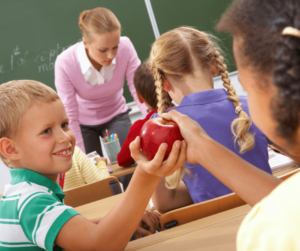
7. Anti-bullying Campaign
This website features a range of resources in English and Irish aimed at supporting
school-based anti-bullying initiatives at both primary and secondary level. Under
the"Primary School" tab there are also a number of recommended resources aimed at
fostering kindness and respect suitable for younger children (infant level). The site
features printable teacher handbooks, interview templates (for investigating and
resolving alleged incidents of bullying) and many more practical tools to complement
existing practice.
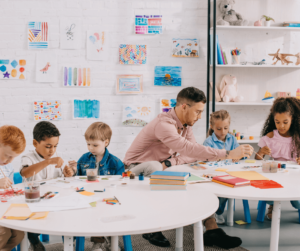
8. Anti-bullying Alliance Packs
This UK based website features a primary pack and a secondary pack full of resources aimed at supporting you to raise awareness about bullying prevention. Resources include lesson plans, handouts, PowerPoint presentations and a downloadable poster. For 2020 the resources have been specially designed so that they are suitable for using online, in small group settings or with the whole class.
9. Don’t Suffer in Silence Video
This is a very powerful 60-second Anti-bullying resource highlighting the need to tell others if a child is a target of bullying behaviour. The short clip could be used as a stimulus for a class discussion encouraging children to talk about who they could tell and how to ask for help.
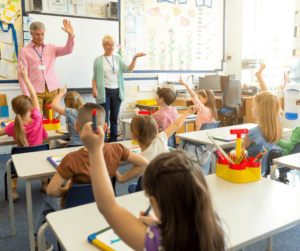
10. Respect Rap
This video features children performing a rap (and some very well-choreographed dance moves!) all about how to treat others with respect.
Bookmark this post to use yourself, or feel free to share it with a colleague who may find these resources helpful.
Marie O'Sullivan, Anokha Learning
Marie O’Sullivan is an experienced teacher and counsellor with an M.Sc. in Child and Adolescent Counselling. She was awarded a distinction for her Master’s Thesis on Bullying Prevention. She is a Course Author at Anokha Learning.
